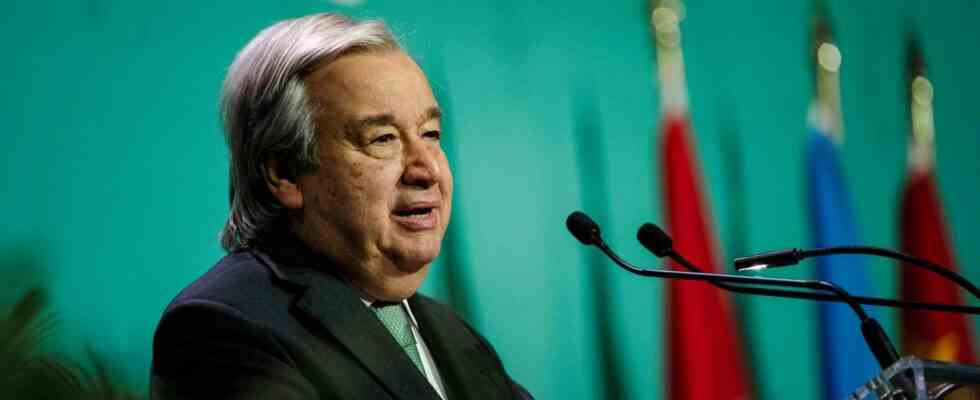It’s time to end our war “against nature” hammered the Secretary General of the UN, Antonio Guterres, Tuesday, December 7, in Montreal, during the opening of the COP15 on biodiversity. Taking dramatic accents, the one who made the protection of the planet, and particularly the fight against climate change, his battle horse castigated the“weapon of mass extinction” what has become of humanity. “With our boundless appetite for uncontrolled and unequal economic growth, humanity has become a weapon of mass extinction”he was alarmed.
He spoke in the wake of the Canadian Prime Minister, Justin Trudeau, whose intervention was interrupted by the tambourines of a dozen representatives of a local indigenous people. “Indigenous genocide = ecocide”, “To save biodiversity, stop invading our lands”proclaimed their banner, held up for a few minutes to the applause of part of the room, before they were calmly escorted to the exit.
The challenges facing COP15 are considerable: a million species are threatened with extinction, a third of the land is seriously degraded and fertile soils are disappearing, while pollution and climate change are accelerating the degradation of the oceans.
More than 190 countries are meeting from December 7 to 19 to try to seal a ten-year pact for nature and thus avoid a sixth mass extinction.
“Cacophony of Chaos”
“Today we are not in harmony with nature, on the contrary we are playing a very different melody”a “cacophony of chaos played with instruments of destruction”summed up the UN Secretary General. “And in the end, we kill ourselves by proxy”he added, with repercussions on employment, hunger, disease and death.
If the scientific observation is little discussed, the points of friction remain numerous between the members of the Convention for Biological Diversity (CBD) of the UN (195 States and the European Union, but without the United States). The outcome of the negotiations, covering around twenty objectives intended to safeguard ecosystems by 2030, remains uncertain.
“For the Paris Agreement to succeed, biodiversity must also succeed. For the climate to succeed, nature must succeed, and that’s why we need to tackle them together.”told Agence France-Presse (AFP) Elizabeth Maruma Mrema, the head of the CBD, a few days ago.
Among the twenty objectives under discussion, the flagship ambition, dubbed “30 × 30”, aims to place at least 30% of the land and seas of the globe under minimum legal protection by 2030. Against 17% respectively and 10% in the previous agreement of 2010.
The issue of funding, sticking point
It will also discuss harmful subsidies to fishing and agriculture, the fight against invasive species and the reduction of pesticides. But the question of the financing of these measures could once again be a sticking point. Developing countries are asking for the creation of a fund, like the one decided for the climate, without this having been granted to them for the moment.
The lack of political leadership could also be felt. Apart from the Canadian Prime Minister, no head of state or government is expected in Montreal, while there were more than 110 in Egypt in November for COP27, the UN climate conference.

